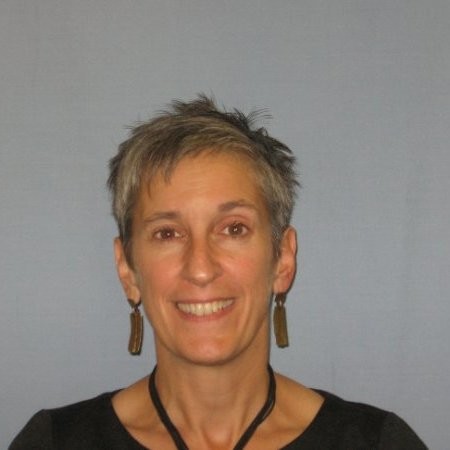3 Hours
Briefings on Demand Part 1: Written Briefs

19 February 2026
3 hours, 01:00 PM EST - 04:00 PM EST
Online
- $399.00 incl.
Description
As a public servant, writing briefings is one of your most important skills. Briefings on Demand Part 1: Written Briefs is a half-day webinar designed to give you an opportunity not only to learn how to write strong briefing notes, but also to practice these skills in an optional follow-up assignment. Our experienced facilitators will give you guidance, tips and structure about how to deliver strong written briefings to senior managers. You will gain insights into expectations of executives of your content, layout and strategic vision.
- To really improve, you need to practice these skills. During the week following the webinar, you will have the chance to submit a writing practice exercise (chosen from three different options explained during the webinar), which will be reviewed by our experienced public service executives, with comments and suggestions.
- Take advantage of Part 2 of Briefings on Demand where we will explore and build on your Oral Briefing skills.
Certificate in Policy and Governance
This course is part of the Certificate in Policy and Governance offered by the institute. While there are no formal prerequisites for this course, we highly recommend that you consider taking the preceding courses or familiarizing yourself with their content. This background knowledge will greatly enhance your learning experience. Please be aware that the instructor may not revisit these earlier topics in order to allocate ample time for the current material.
Learning Objectives:
- You will learn the importance of briefings in the public service decision-making process.
- You will explore key briefing tools for both oral and written briefs.
- You will cover key tips for understanding your audience and what they need to know.
- You will learn about the structure of a briefing note and tips for good writing.
- You will learn how to take your writing to the next level through strategic thinking.
- You will be given an optional exercise to write following the webinar, to submit for comment and suggestions.
Core Skills
- Writing clear, concise, and effective briefing notes.
- Structuring content to meet executive expectations and decision-making needs.
- Understanding audience requirements and tailoring briefings accordingly.
- Applying strategic thinking to enhance the impact of written communications.
- Practicing and refining writing skills through a guided follow-up exercise with expert feedback.
Who should take this course
- Public servant at any level of government and experience who would like to improve your written briefing skills.
Duration
- 3 hours, including brief breaks to maintain engagement and facilitate learning absorption.
Special Offers
Take advantage of these exclusive discounts available when registering for IOG courses:
- Group Course Discount: Register 3 or more colleagues together for the same course and receive 10% off your total registration fee.
Learning together builds team capacity—and helps you save on training costs. - Individual Bundle Discount: Register as an individual for 3 or more courses at the same time and save 10% on your total registration fee.
Advance your professional development while maximizing value.
Facilitators

Guy Boyd has broad federal public service experience having worked in six different departments in such varied functions as: policy development; planning, reporting, and performance measurement; business case development; provision of advice to ministers and deputy heads; quasi-judicial case management; operational and corporate management; and, training design and delivery (including a stint at the Canada School where he revised and delivered its popular course How Ottawa Works).
Of particular relevance to Central Agency courses, Guy worked for over ten years at the Treasury Board Secretariat as a program sector analyst, director, and executive director. During this time he reviewed and developed advice to ministers on over 500 Treasury Board submissions; worked with other Central Agency colleagues on government-wide initiatives, such as the response to the terrorist events of 9-11, the Economic Action Plan to address the financial crisis of 2008-2009, and various Memoranda to Cabinet; assessed and found solutions to departmental funding pressures and management challenges; and, led Treasury Board Secretariat assessment of program and spending reviews such as the Deficit Reduction Action Plan and Strategic Reviews. Guy was awarded the Queen Elizabeth II Diamond Jubilee Medal in 2012 in recognition of this work.
Recently retired from the Public Service, Guy remains passionate about public administration and the constructive contributions all public servants can make on behalf of Canadians. To this end, as a consultant and certified coach, he now focuses on supporting public servants through:
- Coaching current and aspiring public service executives (primarily through the Public Service Commission’s Executive Counselling Services) in areas such as career planning, miscellaneous personal and management issues, and competition preparation
- Developing, customizing, and delivering training and development courses and materials
- Writing and developing Treasury Board Submissions, planning documents, reports, and business cases of all kinds
- Helping managers and their teams develop written briefing skills

Linda Savoie, after a somewhat dispersed early career that includes time as a military officer, an aircraft mechanic, a lawyer, an airline manager and a museum educator, Linda stumbled upon the federal public service in the mid-90s.
There she discovered opportunities to influence policy development and implementation in areas of interest such as climate change, civic engagement, and gender equality. For some 25 years, whether at Transport Canada, the Privy Council Office, Canadian Heritage, Status of Women Canada, or Library and Archives Canada, Linda worked closely, as an executive, with Deputy Ministers, Ministers, and political staff.
While all challenges were interesting, she is particularly thankful for having been able to explore the power of partnerships and alliances in advancing gender equality and the role of libraries and archives in community vitality. Since her retirement in 2022, when not skiing or cycling, she continues to serve as Past Chair of the Carlington Community Health Center and assists the board of a new foundation in developing its governance.

Catherine Waters is the Manager of the Learning Lab with the Institute on Governance. She has extensive experience as a consultant, researcher, and instructor/facilitator in the areas of public management, public policy, organizational development, and corporate governance. Catherine has a special interest in the areas of modernizing governance, citizen engagement and democratic participation, and Aboriginal governance. Catherine has co-authored articles in a number of policy journals. In the area of professional development and life-long learning, she developed and delivered distance learning for the Government of Nunavut and the Certified Management Accountants to expand access to training opportunities to a wider group of public servants.
Catherine teaches in Carleton University’s MA program in Public Policy and Administration, on Public Management and Labour Relations & Collective Bargaining.
Catherine previously worked in London U.K. as a Senior HR Manager for British Telecommunications plc, focusing on international business development in the US and EU and labor relations. Particular areas of interest included the integration of international joint ventures, organizational change, and professional development and training.
Catherine holds a Bachelor of Arts degree in English and French literature (Honours) from the University of Victoria, a Masters in Public Policy and Administration from Carleton University and an MSc in Labour Economics (With Distinction) from the London School of Economics.
As an IOG instructor, Catherine has provided custom training for various ministries in the Government of Ontario, including the Ministry of Transportation, and board training for Ontario agencies, boards and commissions.
